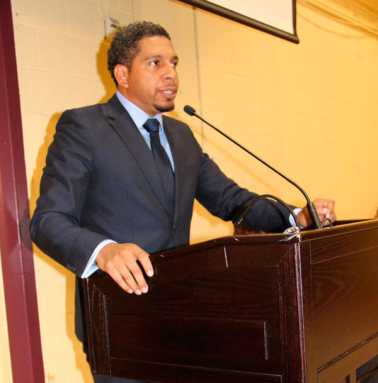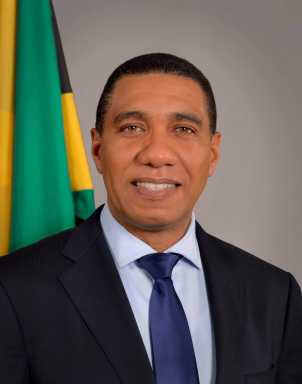Listeners:
Top listeners:
-
play_arrow
RadioJLR Just Press Play
In the wake of efforts by several Caribbean Community nations to banish colonial-era statues and symbols from public view, authorities in St. Vincent and The Grenadines say the time has come to take similar action.
Minister of Finance Camillo Anthony Gonsalves used the opportunity of a recent speech at an African Liberation Day ceremony in the city to wonder why successive governments have not taken any steps to change the names of streets, buildings, facilities, and even the capital, Kingstown, over the decades as he is sure such affects public sensibilities.
“We can’t change the entire geography of the country and all the names immediately, but, you know, I’m sitting there in my office last week and learning how we’re fixing God Save the Queen Bridge and God Save the King, and it rankles. This is something that we do every day. We have not taken that path, but I think we’re at the stage in our consciousness where we do need to make a few changes. It could be a gradual process. It could be a phased process,” said the minister, the son of five-time Prime Minister Ralph Gonsalves.
His comments follow moves by several regional member states, including Barbados and Trinidad, in recent years to remove statues from public view as part of what officials claim are efforts to complete the cycle of independence from Britain.
Five years ago, Barbados removed the 200-year-old statue of British high seas warrior Lord Horatio Nelson from the city’s central or Heroes Square as it was preparing to switch to a republic the following year. The area was originally named Trafalgar Square, as is the case in Britain. The statue was placed in an area outside the capital, Bridgetown.
In neighboring Trinidad, authorities last year ordered the removal of Christopher Columbus’s original ships to the so-called New World from the face of the national coat of arms, replacing it with the golden Steelpan, widely regarded as the only new instrument invented in the 20th century. The bill to effect such a major change was unanimously approved by the 41-member parliament.
Meanwhile, in late 2022, vandals severely damaged Columbus’ statue in the Bahamian capital of Nassau, forcing authorities to remove it from public view while a debate raged as to whether it should ever be allowed to return as locals grumbled about its prominent place at government house. Across the region, the discussion of the fate of colonial-era relics and vestiges continues.
“I think we must have a serious reckoning, and we’ve discussed it. Everybody says from time to time, ‘Oh, we have so many roads and villages named after colonial powers and colonial people’… people from colonial times with some disreputable histories, but we really need to have a serious reckoning with some of the names that we have around this country,” Minister Gonsalves noted.
Written by: Adm
Similar posts
© 2025. All Rights Reserved by Radio-JLR



